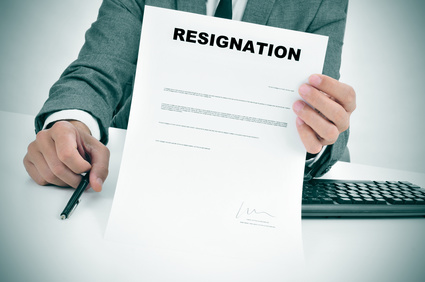
Kate’s company made big promises when she joined. She was told that new staff would be brought in as the work increased. But that never happened, and her workload became out of control.
She told her boss she wasn’t happy and is now talking to an employment lawyer to help negotiate a settlement agreement.
Like Kate, are you unhappy at work because of the way you’ve been treated?
Your employer might pay you a sum of money in return for agreeing not to take action against them. This is called a settlement agreement (or compromise agreement in Northern Ireland).
Do It Yourself
If your employer is offering more than your legal entitlement, and you’d prefer to maintain a good relationship with them, you may choose to conduct your own negotiations. However, this isn’t easy without expert help.
Here are some of the aspects you need to consider:
- Why should they pay you to leave (and what you will do if they don’t)
- How likely you are to win if you took them to an Employment Tribunal (and how much you might receive)
- What is the minimum amount you’d settle for (and the realistic maximum that you dream of)
- What matters to you but doesn’t cost your employer much, such as a brilliant reference you can use to apply for future jobs
- What might matter to your employer but not to you, such as staying on for a smooth handover to your successor, or promising to keep the deal confidential
Negotiation tips
- Even if you’re angry or upset, it strengthens your position when you keep the emotion of out it and remain matter-of-fact.
- Don’t openly threaten them or say that trust and confidence has broken down (although this can be mentioned in a ‘without prejudice’ letter or meeting).
- Try to find out your employer’s priorities and motivations by asking open questions (those that can’t be answered with Yes or No).
- Paraphrase what they say using their own words so you can check your understanding.
- Make your best sensible offer (perhaps double what you’d settle for so there is room for them to negotiate).
- Know when to stay quiet (silence is powerful).
- Remember to include any outstanding holiday pay.
- Be aware an ex gratia payment up to £30,000 is tax-free.
- Be reasonable and open to considering their suggestions.
- When you reach your bottom line, use the words ‘final offer’.
- Aim to reach a settlement agreement rather than go to the Tribunal, which can be a long and costly process, no matter what the outcome.
- Set them a deadline and stick to it (to keep the upper hand, you don’t have to stick to any deadlines they may set for you).
- Don’t let your employer drag out negotiations past the strict three-month limit for Tribunal claims.
- Ask to see a draft agreement and be sure you are happy with the small print as well as the financial offer.
- Once terms have been agreed, your employer will produce the formal written agreement. To avoid confusion, it may be useful to summarise your understanding in an email you send them in advance.
Constructive dismissal
It’s much harder to prove a constructive dismissal case than unfair dismissal, because if you choose to stay in your job even though you are being treated badly, it can be assumed that you have accepted the mistreatment.
The first step is to submit a formal written grievance. Whatever response your employer offers, always use your right of appeal.
If things don’t improve, then you should resign as soon as possible. This can help settlement negotiations by proving to your employer that you mean what you say so are more likely take them to a Tribunal.
Your resignation letter should be worded correctly and specify your last day. This is because the time limit for Tribunal claims starts from your last day in the office, not the date you resign.
On the other hand, merely offering to resign can motivate your employer to increase the settlement payout, for example, when they want you to leave but don’t want to dismiss you.
As you can tell, negotiating your own settlement agreement may be more complicated than you think, so of course we recommend you take legal advice.
Need help?
For a free initial review of your claim, call 0808 168 7288 or Make An Online Enquiry>.
We have already helped thousands of people to win millions of pounds in compensation.
You have a choice of ways to pay, including ‘no win, no fee’.
We will also discuss the best methods of funding your case and seek to reach a solution that best suits your needs. This can involve a “no-win, no-fee” agreement if appropriate.
